
Diabetes is disease whose effects can be seen on all organs and tissues in the body. It affects the nerves, eyes, cardiovascular system, feet and almost anything else you can think of. Poorly controlled or completely neglected diabetes is known to affect both nervous and vascular system, leading to inability to feel pain, wounds and injuries. There are also some problems with slow healing of wounds and promotion of further infection. Some of these injuries may end up being extremely bad and some could turn to ulcers and gangrene, especially frequently affecting the feet of diabetics.
What Contributes to Foot Gangrene?
Diabetic patients lack sufficient amount of insulin in the body. This has negative effects to migration of white blood cells responsible for protection and defense from any invading microorganisms. Places of diabetic injuries and wounds usually lack proper amount of oxygen because of blocked blood vessels. This allows favorable environment for the growth of different microorganisms, thus spreading infection and sepsis without any disturbance from white blood cells.
Diabetic neuropathy is responsible for collapse of the arch of the feet. Diabetic feet become flat and develop callosities, which can be infected and consequently developed into gangrene of the foot. Antibiotics can't do anything for this infection, since they can’t reach these places and infection grows without any possible interference.
Prevention Methods To prevent formation and development of gangrene in the foot, diabetic patients must control their blood sugar regularly. Self-monitoring is of utmost importance for these patients and they should always have a glucometer handy. Their blood sugar level should always be about 110 mgs% in overnight fasting or about 126 mgs% 2 hours after any meal of the day. If their medications or insulin doesn’t provide these levels of blood glucose, they should consult the doctor and get checked again in the hospital environment.
Fitting and soft foot wear at all times is found to be beneficial and able to prevent injuries, infections and gangrene of the feet in diabetic patients. Wearing hard or ill fitted shoes can hurt and damage the foot/feet and lead to gangrene in these people.
If you are diabetic, make sure to check your feet for any loss of sensations and for any injuries every night, before bedtime. This way, you will prevent any unpleasant or serious complications with the feet that may arise. Additionally, doctors advise diabetic patients to wash their feet with lukewarm water every night before going to bed, to remove all dirt from the feet.


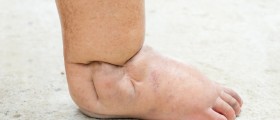

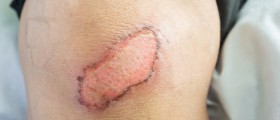
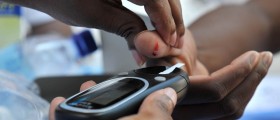


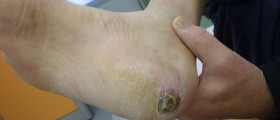

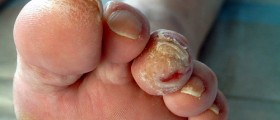




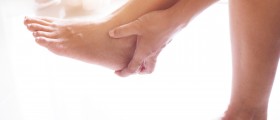
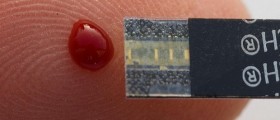
Your thoughts on this
Loading...